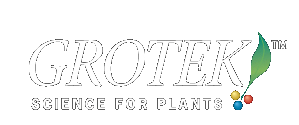Just as we humans require vitamins, minerals and lots of fresh water so do the plants we grow, and when growing vegetables it becomes even more important to choose the right nutrients to not only provide plants with the optimum conditions in which to grow but also to not use products that may harm the people who consume the vegetables. As humans gain many of their essential daily intake of vitamins, minerals and trace elements from plant sources it is critical that soils used to grow such plants be able to provide the right amount of each to ensure healthy growth.
These are the major elements plants require to thrive:
 – Essential to the health of the root system and leaf development, calcium is just as essential to plants as it is to humans. Calcium is essential to the formation of new cells and then holding cell walls together to provide strength to the plant. It is often lacking in soil and requires being added in order for plants to grow into healthy, strong specimens.
– Essential to the health of the root system and leaf development, calcium is just as essential to plants as it is to humans. Calcium is essential to the formation of new cells and then holding cell walls together to provide strength to the plant. It is often lacking in soil and requires being added in order for plants to grow into healthy, strong specimens.
![]() – Also playing an essential role in the formation of chlorophyll, magnesium is often lacking in the soil used to grow crops, particularly if there is an excess of potassium present. A lack of magnesium is often evident when plants age prematurely but can be rectified with the addition of Epsom salts in home gardens.
– Also playing an essential role in the formation of chlorophyll, magnesium is often lacking in the soil used to grow crops, particularly if there is an excess of potassium present. A lack of magnesium is often evident when plants age prematurely but can be rectified with the addition of Epsom salts in home gardens.
 – Found in all plant cells nitrogen is essential to the growth process of plants as it is a major component found in chlorophyll, which in turn is vital for photosynthesis. Nitrogen is also a major component of amino acids which are required to build proteins necessary to a plant’s growth and survival. All of these things are important but perhaps what is the most vital role nitrogen plays is in plant DNA, therefore without it plants would not be able to reproduce.
– Found in all plant cells nitrogen is essential to the growth process of plants as it is a major component found in chlorophyll, which in turn is vital for photosynthesis. Nitrogen is also a major component of amino acids which are required to build proteins necessary to a plant’s growth and survival. All of these things are important but perhaps what is the most vital role nitrogen plays is in plant DNA, therefore without it plants would not be able to reproduce.
![]() – Like nitrogen, phosphorus is also important for photosynthesis. Phosphorus is also essential to plant growth all the way from the early root creation all the way to the maturity rate of the plant. Many soils lack sufficient phosphorus therefore growers are often required to add phosphorus to ensure good plant growth.
– Like nitrogen, phosphorus is also important for photosynthesis. Phosphorus is also essential to plant growth all the way from the early root creation all the way to the maturity rate of the plant. Many soils lack sufficient phosphorus therefore growers are often required to add phosphorus to ensure good plant growth.
 – Like phosphorus, potassium is also often lacking in many types of soil, and yet it is essential to plant strength and resistance to diseases. For growers attempting to plant in soil that has previously been grazing land for cattle and sheep or for intensive cropping the addition of potassium is advised, as grazing and crops rob the soil of potassium to the point where there is insufficient levels required for successful plant growth.
– Like phosphorus, potassium is also often lacking in many types of soil, and yet it is essential to plant strength and resistance to diseases. For growers attempting to plant in soil that has previously been grazing land for cattle and sheep or for intensive cropping the addition of potassium is advised, as grazing and crops rob the soil of potassium to the point where there is insufficient levels required for successful plant growth.
 – contributes to the aroma and flavor of many plants, in particular those found in vegetable plants such as garlic, onion and mustard. Sulfur is usually found in plentiful supply in good growing soil but it does leach easily and therefore soil may require additional sulfur to ensure a consistent level. Sulfur helps to reduce the level of sodium in the soil, and is only required in very small amounts.
– contributes to the aroma and flavor of many plants, in particular those found in vegetable plants such as garlic, onion and mustard. Sulfur is usually found in plentiful supply in good growing soil but it does leach easily and therefore soil may require additional sulfur to ensure a consistent level. Sulfur helps to reduce the level of sodium in the soil, and is only required in very small amounts.
